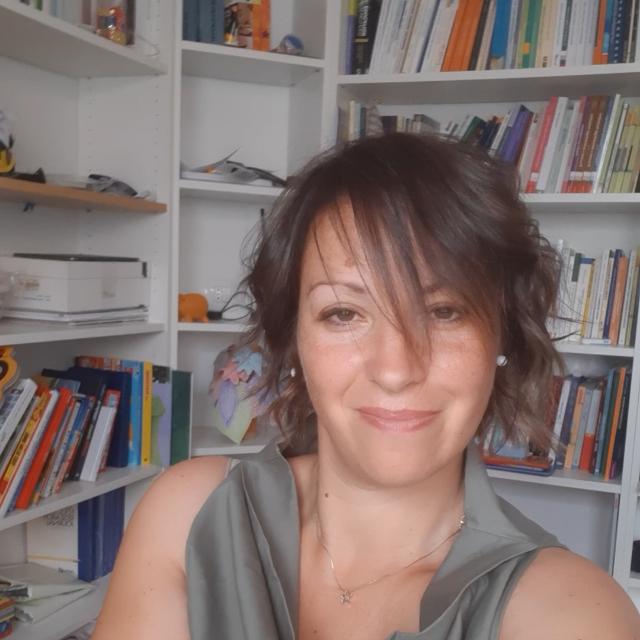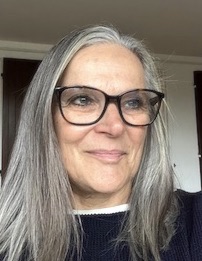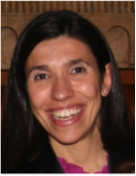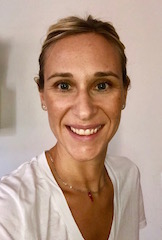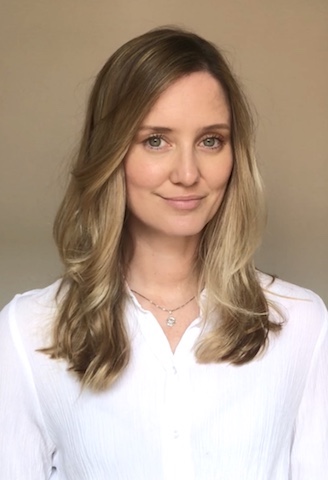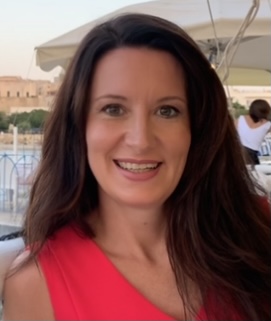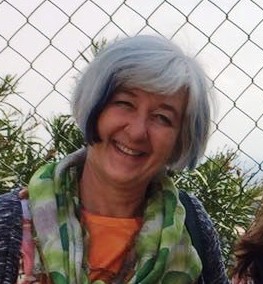Studying at the University of Verona
Here you can find information on the organisational aspects of the Programme, lecture timetables, learning activities and useful contact details for your time at the University, from enrolment to graduation.
Academic calendar
The academic calendar shows the deadlines and scheduled events that are relevant to students, teaching and technical-administrative staff of the University. Public holidays and University closures are also indicated. The academic year normally begins on 1 October each year and ends on 30 September of the following year.
Course calendar
The Academic Calendar sets out the degree programme lecture and exam timetables, as well as the relevant university closure dates..
| Period | From | To |
|---|---|---|
| Sem. 1A | Sep 24, 2018 | Oct 27, 2018 |
| Sem. 1B | Nov 19, 2018 | Dec 21, 2018 |
| Sem. 2A | Feb 18, 2019 | Mar 23, 2019 |
| Sem. 2B | Apr 8, 2019 | May 18, 2019 |
| Session | From | To |
|---|---|---|
| Sessione d'esame Invernale | Jan 21, 2019 | Feb 16, 2019 |
| Sessione d'esame Estiva | Jun 17, 2019 | Jul 27, 2019 |
| Sessione d'esame Autunnale | Aug 26, 2019 | Sep 21, 2019 |
| Session | From | To |
|---|---|---|
| Sessione Invernale | Feb 27, 2019 | Mar 13, 2019 |
| Sessione Estiva - I appello | Jun 10, 2019 | Jun 24, 2019 |
| Sessione Estiva - II appello | Jul 3, 2019 | Jul 16, 2019 |
| Sessione Autunnale - I appello | Oct 9, 2019 | Oct 21, 2019 |
| Sessione Autunnale - II appello | Dec 4, 2019 | Dec 17, 2019 |
| Period | From | To |
|---|---|---|
| Festa di Ognissanti | Nov 1, 2018 | Nov 1, 2018 |
| Festa dell’Immacolata | Dec 8, 2018 | Dec 8, 2018 |
| Vacanze di Natale | Dec 22, 2018 | Jan 6, 2019 |
| Vacanze di Pasqua | Apr 19, 2019 | Apr 23, 2019 |
| Festa della liberazione | Apr 25, 2019 | Apr 25, 2019 |
| Festa del lavoro | May 1, 2019 | May 1, 2019 |
| Festa del Santo Patrono - S. Zeno | May 21, 2019 | May 21, 2019 |
| Festa della Repubblica | Jun 2, 2019 | Jun 2, 2019 |
| Description | Period | From | To |
|---|---|---|---|
| Prima parte del primo semestre | Lab. 1A | Oct 29, 2018 | Nov 10, 2018 |
| Seconda parte del primo semestre | Lab. 1B | Jan 7, 2019 | Jan 19, 2019 |
| Prima parte del secondo semestre | Lab. 2A | Mar 25, 2019 | Apr 6, 2019 |
| Seconda parte del secondo semestre | Lab. 2B | May 20, 2019 | Jun 1, 2019 |
Exam calendar
Exam dates and rounds are managed by the relevant Humanistic Studies Teaching and Student Services Unit.
To view all the exam sessions available, please use the Exam dashboard on ESSE3.
If you forgot your login details or have problems logging in, please contact the relevant IT HelpDesk, or check the login details recovery web page.
Should you have any doubts or questions, please check the Enrollment FAQs
Academic staff
 monica.antonello@univr.it
monica.antonello@univr.it
 3409616648
3409616648
 jessica.bertolani@univr.it
jessica.bertolani@univr.it
 valentina.biino@univr.it
valentina.biino@univr.it
 marisa.bonafini@univr.it
marisa.bonafini@univr.it
 antonio.cosentino@univr.it
antonio.cosentino@univr.it
 donato.desilvestri@univr.it
donato.desilvestri@univr.it
Ganzerla Luca Giovanni Michelangelo
 lucagiovanni.ganzerla@univr.it
lucagiovanni.ganzerla@univr.it
 licia.landi@univr.it
licia.landi@univr.it
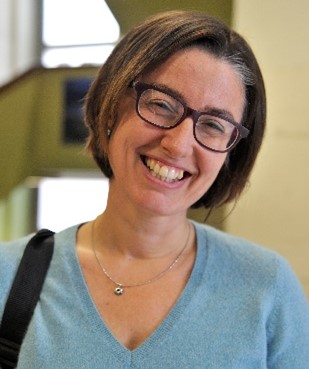
La Rana Adele
 adele.larana@univr.it
adele.larana@univr.it
 giuseppe.longo@univr.it
giuseppe.longo@univr.it
 beatrice.melodiafesta@univr.it
beatrice.melodiafesta@univr.it
 anja.meyer@univr.it
anja.meyer@univr.it

Migliorati Lorenzo
 lorenzo.migliorati@univr.it
lorenzo.migliorati@univr.it
 045802 8135
045802 8135
 maria.mori@univr.it
maria.mori@univr.it
 paolo.nitti@univr.it
paolo.nitti@univr.it
 nicola.pelizzari@univr.it
nicola.pelizzari@univr.it
 beatrice.perin@univr.it
beatrice.perin@univr.it
 michele.picotti@univr.it
michele.picotti@univr.it
 marinarighetti.mr@gmail.com
marinarighetti.mr@gmail.com
 angeloluigi.sangalli@univr.it
angeloluigi.sangalli@univr.it
 3383725508
3383725508
 marco.ubbiali@univr.it
marco.ubbiali@univr.it
 federica.zantedeschi@univr.it
federica.zantedeschi@univr.it
Study Plan
The Study Plan includes all modules, teaching and learning activities that each student will need to undertake during their time at the University.
Please select your Study Plan based on your enrollment year.
1° Year
| Modules | Credits | TAF | SSD |
|---|
2° Year activated in the A.Y. 2019/2020
| Modules | Credits | TAF | SSD |
|---|
3° Year activated in the A.Y. 2020/2021
| Modules | Credits | TAF | SSD |
|---|
4° Year activated in the A.Y. 2021/2022
| Modules | Credits | TAF | SSD |
|---|
English laboratory 4th year
5° Year activated in the A.Y. 2022/2023
| Modules | Credits | TAF | SSD |
|---|
| Modules | Credits | TAF | SSD |
|---|
| Modules | Credits | TAF | SSD |
|---|
| Modules | Credits | TAF | SSD |
|---|
| Modules | Credits | TAF | SSD |
|---|
English laboratory 4th year
| Modules | Credits | TAF | SSD |
|---|
| Modules | Credits | TAF | SSD |
|---|
Legend | Type of training activity (TTA)
TAF (Type of Educational Activity) All courses and activities are classified into different types of educational activities, indicated by a letter.
Type D and Type F activities
Modules not yet included
Intercultural Education and Theories of dialogue and integration (2021/2022)
The teaching is organized as follows:
TEORIE DEL DIALOGO E DELL'INTEGRAZIONE
Credits
5
Period
See the unit page
Academic staff
See the unit page
Learning outcomes
Intercultural Pedagogy
The goal of the course is to teach the basics of Intercultural Pedagogy, considered the best answer to pluralism, globalization, multiethnic and multicultural society. A specific attention will be given to the epistemological and methodological-didactic aspects. The changes caused by the globalization and the multicultural societies will be analyzed during the course and there will be also presented the pedagogical answers to these challenges (meta-cultural, trans-cultural, multi-cultural and intercultural pedagogy). In particular, the course will consider the historical development of Intercultural Pedagogy in Europe and in overseas countries.
Theories of dialogue and integration
The goal of the course is to develop preservice teachers’ communication and mediation skills, starting from the reinforcement of their cultural awareness: indeed to become aware of own and others' cultural perspective is an essential prerequisite for encouraging educational innovation. For this purpose, the preservice teachers will learn how to use practices such as linguistic and conceptual deconstruction and deconstruction and decentralization exercises, that are essential to find a new way to look at themselves and others. They will also analyze the main theories that form the background to the acquisition of communication, dialogic and mediation skills and of guidelines for constructive conflict management.
Program
------------------------
MM: TEORIE DEL DIALOGO E DELL'INTEGRAZIONE
------------------------
The course will present the principles of a dialogic practice understood as an education of inner and intersubjective thought inspired by the principle of caring. Specifically, the following themes will be addressed: The value of dialogue within the educational process and the social construction of knowledge. The Socratic Dialogue: a cognitive practice for reasoning together and learning to think for oneself in depth. The maieutic approach in school: experiences and current research. The theoretical foundations and training techniques of the MelArete project. The role of the adult in the dialogue with children within school contexts: recognizing and reflecting on different communication styles. Methods and techniques for analyzing group conversations.
------------------------
MM: PEDAGOGIA INTERCULTURALE
------------------------
Contents: Ist part Starting from ourselves Recognition in educational contexts - Difference as a constitutive element of human life - The theory of recognition The three steps for an intercultural approach - Decentralization - The reference framework of the other - Negotiation and intercultural mediation Obstacles to understanding the other - The representations - The forms of ethnocentrism - Limits of human judgment - Professional models and techniques IInd part The school context: ‘a mixed bag’ - Life and experiences of children and families - Insights: the ‘second generations’ - School ‘a mixed bag’ - Micro-aggressions - The teachers’ point of view on diversity - Ministerial documents IIIrd part Teachers intercultural training and competences - The construct of intercultural competence. - A model of intercultural competence for primary and infant school teachers - First level intercultural competence - Second level intercultural competence IVth part Relationship with parents from here and from elsewhere Teaching methods and learning settings Traditional lectures using additional materials (slides, video clips, extracts from government documents, other texts, etc.), individual exercises (personal skills and competencies) and group exercises (case studies, interviews, etc.) Bibliography 1. P. Dusi (2012). la comunicazione docenti-genitori. Milano: Franco Angeli. 2. Recommended reading list This list of titles applies equally to the programs for attending students and for non-attending students. Additional recommendations will be provided to attending students during the course of the lessons.
Bibliography
Examination Methods
------------------------
MM: TEORIE DEL DIALOGO E DELL'INTEGRAZIONE
------------------------
Several options are available: written papers for those attending the course or oral presentations for those not attending the course. In the written essay the attending students will be able to present: - an educational-didactic project characterized by a maieutic approach (preschool or elementary school); - the analysis of a group dialogue recorded within the school context in order to highlight the conversational moves and communicative styles. Students will be assessed on their ability to thoroughly and critically re-elaborate the content presented during the course, and on their understanding of the fundamental concepts present in the reference texts.
------------------------
MM: PEDAGOGIA INTERCULTURALE
------------------------
Exams: Learning outcomes will be assessed through an individual written essay Nature of the assessment and material covered: - An individual written report, which – taking as its starting point the collected interviews (at least 2) - should critically analyse them using, as appropriate, the concepts, theoretical models and interventions covered during the course. Assessment criteria The assessment result will be expressed as a score out of a possible thirty marks Marks will be awarded on the basis of the following performance criteria: -command of specialist terminology pertaining to the sector in question; - the rigorousness in the administration and transcription of the interviews (using the format posted in moodle). - by analyzing and discussing the collected interviews; - by citing the texts indicated in the bibliography and other texts identified during the research process, - demonstration of personal reflection on the material studied and the ability to reconcile theory and practice; - by providing a personal interpretation of, and reflection on, the lessons attended bibliographical sources. - correct grammar and syntax. Instructions for drafting the report* The data analysis process should be supported by references to the texts covered during the course (and to other works and studies known to the student or students). The length of the report is to be decided by the student himself. The recommended minimum length, however, is 10 pages (each of 3,000 characters) plus the bibliography and appendices (which should include a complete transcription of the data collected through interviews) The report should include: - a cover (with full names and matriculation numbers of the student or students, the name of the degree course, the project title, and a contact email address and telephone number; - an abstract/brief summary of the project; - introduction; - data analysis; - discussion of data analysis; - conclusion; - bibliography - appendices: all data collected via interviews. The text should be subdivided into paragraphs and supplemented, in a proper academic fashion, by footnotes and final bibliography. The report must be submitted by email to the course leader at least five days prior to the exam date selected by the student.
Career prospects
Module/Programme news
News for students
There you will find information, resources and services useful during your time at the University (Student’s exam record, your study plan on ESSE3, Distance Learning courses, university email account, office forms, administrative procedures, etc.). You can log into MyUnivr with your GIA login details: only in this way will you be able to receive notification of all the notices from your teachers and your secretariat via email and soon also via the Univr app.
Stage e Tirocini
Le attività di tirocinio indirette e dirette, per complessive 600 ore pari a 24 crediti formativi universitari, come stabilito dal D.M. 249/2010, hanno inizio nel secondo anno di corso e si svolgono secondo modalità tali da assicurare un aumento progressivo del numero dei relativi crediti formativi universitari fino all'ultimo anno.La struttura generale del tirocinio prevede:
- II annualità 100 ore di tirocinio pari a 4 CFU
- III annualità 100 ore di tirocinio pari a 4 CFU
- IV annualità 175 ore di tirocinio pari a 7 CFU
- V annualità 225 ore di tirocinio pari a 9 CFU.
Il tirocinio è seguito da insegnanti tutor coordinatori e da tutor organizzatori distaccati, rispettivamente a tempo parziale e a tempo pieno, presso il CdS. Esso prevede attività che si sviluppano secondo modalità di partecipazione periferica e modalità di partecipazione attiva: tali attività dovranno essere, adeguatamente documentate da parte dello studente e saranno supervisionate dai tutor competenti.
La frequenza alle attività di tirocinio è obbligatoria.
Documents
| Title | Info File |
|---|---|
|
|
pdf, it, 115 KB, 23/06/21 |
Progetto Dinamo corsi di formazione continua
I corsi del Progetto Dinamo sono una proposta di formazione continua per i/le docenti della scuola dell'infanzia e primaria in servizio elaborata dal Corso di Studi in Scienze della Formazione Primaria dell'Università di Verona.
La loro frequenza, in numero limitato, è aperta anche agli studenti di Scienze della formazione primaria.
L'iscrizione non comporta oneri per gli studenti.
Per i corsi di 8 ore sarà riconosciuto 1 CFU nei crediti liberi; per quelli di 16 ore i crediti liberi riconosciuti saranno 2.
Le modalità di iscrizione saranno comunicate e gestite tramite i rappresentanti degli studenti.
Documents
| Title | Info File |
|---|---|
|
|
pdf, it, 198 KB, 29/08/22 |
Gestione carriere
Linguistic training CLA
Practical information for students
Documents
| Title | Info File |
|---|---|
|
|
pdf, it, 325 KB, 02/05/23 |
|
|
pdf, it, 212 KB, 02/05/23 |
|
|
pdf, it, 131 KB, 02/05/23 |
Student mentoring
Student login and resources
Graduation
Documents
| Title | Info File |
|---|---|
|
|
pdf, it, 434 KB, 07/02/24 |
|
|
pdf, it, 418 KB, 30/11/23 |
|
|
pdf, it, 131 KB, 19/03/24 |
eTwinning
Il Corso di SFP di Verona fa parte del Gruppo Europeo per la formazione eTwinning per i futuri insegnanti – Initial Teacher Education (ITE). Seminari di presentazione della piattaforma e delle sue potenzialità, introduzione alla comunità e/o laboratori sull’uso della stessa sono proposti annualmente come parte integrante dei Laboratori di Lingua Inglese per la Professionalità Docente, e quindi come parte dell’offerta formativa; per il II anno anche con attività progettuale in lingua inglese, studente-studente o a piccoli gruppi.
Per il I anno, a partire dall’ A.A. 2017/2018 è stato realizzato con il supporto dell’USR Veneto e la collaborazione delle ambasciatrici eTwinning un incontro seminariale di presentazione della comunità e piattaforma eTwinning, come parte del Laboratorio di Lingua Inglese per la Professionalità docente. Gli studenti svolgono attività di ricerca e reperimento materiale nel portale eTwinning, studiano alcuni progetti considerati “buone pratiche” e si confrontano con una breve attività in piccolo gruppo sui primi passi di introduzione e orientamento ad un progetto eTwinning. Solitamente sono coinvolti circa un centinaio di studenti.
Per il II anno, a partire dall’A.A. 2020/2021, è stato introdotto un Laboratorio eTwinning (12 ore – 1CFU) di progettualità didattica in lingua inglese. Gli studenti svolgono attività individuali all’interno della Comunità volte a costruire una rete di partner e cogliere ogni potenzialità offerta dalla piattaforma. Inoltre, viene proposta una simulazione progettuale, in piccoli gruppi, dall’introduzione dei partner alla valutazione e disseminazione dei risultati di un progetto eTwinning. Solitamente partecipano circa un centinaio di studenti. Al termine del modulo è richiesto un portfolio digitale in lingua inglese. I futuri docenti esercitano contemporaneamente competenze linguistiche, digitali e sociali facilmente riutilizzabili nella professione futura.
Per il V anno, a partire dal AA 2022/2023, è stato introdotto, all'interno del Laboratorio di Lingua Inglese, un Laboratorio eTwinning di progettualità didattica con un altro ITE (12 ore – 1CFU).
Nell'a.a. 2022/2023 è stata attivata e realizzata una collaborazione con SFP - Università di Cagliari.
Nell'a.a. 2023/2024 si è attivata una collaborazione con l'Università di Castilla-La Mancha (Spagna).
Le attività realizzate sono state presentate durante il Coordinamento Nazionale eTwinning ITE
- a Firenze il 17 e 18 marzo 2022
- e a Lecce il 15 e 16 maggio 2023



